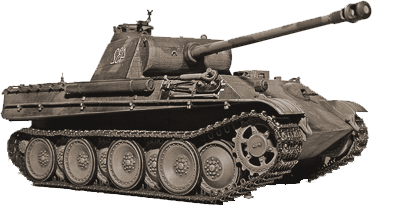"Mercatante's study challenges today's conventional wisdom and is likely to change readers' perceptions regarding how and why Germany lost a war that, as he clearly demonstrates, Hitler came dangerously close to winning."
Why Germany Nearly Won: A New History of the Second World War in Europe
Order at:
Amazon | Barnes & Noble
Why Germany Nearly Won challenges today's conventional wisdom explaining Germany's Second World War defeat as inevitable primarily for brute force economic or military reasons created when Germany attacked the Soviet Union. Taking an entirely new perspective on explaining the Second World War in Europe, and its outcome, at its core Why Germany Nearly Won offers the reader three interrelated, unique, and potentially ground-breaking arguments. First, qualitative differences between the combatants proved more important in determining the War's outcome than have the quantitative brute force measures so commonly discussed in the past. Second, attacking the Soviet Union represented Germany's best opportunity to win a War which, by commonly cited measures of military potential, Germany never should have had even a remote chance of winning. Third, for reasons frequently overlooked and misunderstood Germany came far closer to winning the War than has previously been recognized.
Features:
- Twenty-four detailed maps show the position and movement of opposing forces during the key campaigns and battles discussed in the book.
- Thirty-four charts and figures are provided, including detailed orders of battle, tables of organization and equipment, economic figures, and equipment comparisons.
Highlights:
Why Germany Nearly Won offers the reader a fresh perspective on World War II, including:
- Creating a new framework for understanding the Second World War, one challenging today's conventional wisdom
- Advancing a new interpretation of Operation Barbarossa, usually seen as the great German blunder of the war by those subscribing to the brute force myth, as, in fact, Germany's last and best hope actually to win the war
- Demonstrating how closely fought the war actually was
- Explaining how the Mediterranean Theater of the War represented a crucial distraction and net drain on the primary German war effort in Eastern Europe
- Revealing why it was the combined arms panzer division as one key bolstering the German army's renaissance; not the tank itself
- Profiling wartime changes to the German panzer arm as a metaphor for the larger story behind the Wehrmacht's rise and fall
- Exploring the Red Army's constantly evolving approach to war, including what it was that made the late war Red Army so much more effective than its equally massive early war version
- Examining how the Anglo-American alliance was able to defeat the Wehrmacht, including by offering a new reason for Allied success not only in the sea and air but also against the German army
- And more....
About the Author
Steven D. Mercatante is the founder and editor in chief of The Globe at War, a website focused on exploring World War II that has established the author as a respected authority on the subject. He is a corporate tax attorney and is the founder and principal of TIR Consulting LLC; a consulting firm specializing in international, federal, state and local tax compliance. Mercatante received his BA from the University of Michigan, a teaching certificate in history and political science from Eastern Michigan University, and a JD from Michigan State University College of Law, graduating with a concentration in international law. He is a member of the State Bar of Michigan. His published works include many writings in the legal and historical fields, in print and online publications, including the 2008 journal article The Deregulation of Usury Ceilings, Rise of Easy Credit and Increasing Consumer Debt published in the South Dakota Law Review.


